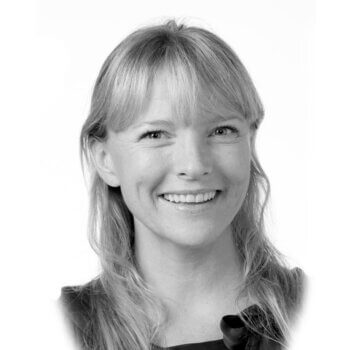(Women on Top in Tech is a series about Women Founders, CEOs, and Leaders in technology. It aims to amplify and bring to the fore diversity in leadership in technology.)
Here is my interview with former fund manager and current financial software entrepreneur Clare Flynn Levy, Founder and CEO of Essentia Analytics.
What makes you do what you do?
My company, Essentia Analytics, makes behavioral analytics technology that helps professional investors make more money by doing more of what they are good at and less of what they’re not. It represents the intersection of my passion for solving a problem I had myself (in my former life as a fund manager), my skills, my contacts, and a need I see in the investment management industry.
How did you rise in the industry you are in?
I started out as a student, stuffing prospectus envelopes at a mutual fund company. My first job out of university was as a trainee fund manager, and I worked my way up from there, eventually launching my own hedge fund. I was always a tech specialist, and when I hung up my fund manager boots, it was to “go native” into running a company that made software for hedge funds. I found that my understanding of the customer was a real competitive advantage – and it’s what lead me to start Essentia.
Why did you take on this role/start this startup especially since this is perhaps a stretch or challenge for you (or viewed as one since you are not the usual leadership demographics)?
When I first started thinking about working in the behavioral analytics field, I assumed that I couldn’t go it alone – I didn’t have the development or data science expertise required. But the more I spoke with the people who were already working in the space, who were largely quant analysts, the more I thought “I don’t actually need them – I can hire a team that’s as clever as they are, and I have something they won’t be able to replicate: a deep understanding of what my customers need, and a set of relationships with those customers that have been built over decades in the industry.” I knew that when the chips were down (which the inevitably would be, at some point), I could rely on that intrinsic competitive advantage.
Do you have a mentor that you look up to in your industries, or did you look for one, or how did that work?
I have had several mentors over the years – some more formal than others. I didn’t actively look for them – they have been people with whom I connect at a deep level, who have cared about helping me succeed. When I was first starting out in fund management, Nicola Horlick (who ran the team I joined at Morgan Grenfell) was a mentor – in fact, a big part of why I decided to take the job was the fact that there was a female leader already in place. These days, I have multiple mentors, plus a coach – I think it’s extremely important to have an objective, experienced professionals to help keep you on track, to open doors, and to remind you why you have the power to succeed.
Now as a leader how do you spot, develop, keep, grow and support your talent?
I’m very proud of the culture and the quality of the team we’ve built and maintained at Essentia. It’s a living, breathing organism in its own right, and it never ceases to amaze me with its resilience. I think that’s because we’ve been very picky in recruitment, and have prioritized hiring people who really want to be there – who believe in our cause, and who are fundamentally aligned with our values. Sometimes we get it wrong, and when we do, we act quickly. But when we get it right, we get it really right – our people have been very loyal because we treat each other with respect, we are transparent with each other, and we’re always looking for ways to offer both personal and professional growth opportunities.
Do you consciously or unconsciously support diversity and why?
I support diversity both consciously and unconsciously. I know it produces better results because I have witnessed it in many previous lives. I don’t just mean gender diversity or even ethnic diversity – I think cognitive diversity is important, too. At this point, I don’t just prioritize diversity on my own team – I look for both clients and suppliers who have diverse teams, too. I think companies that don’t prioritize diversity are at a disadvantage – I’d rather deal with those who do.
What is your take on what it takes to be a great leader in your industry and as a general rule of thumb?
Bring your authentic self to work. I spent my younger years trying to conform to what I thought the fund management industry wanted me to be, always worrying that I was going to be caught off-balance. Over time, I figured out that that’s a waste of energy, it’s not satisfying and it’s not sustainable. As a leader today, I see my job as empowering the people on my team to add value and building strong relationships with my clients and peers – both of those are things that I can only do well if I am being authentically me. As it turns out, it not only works, but it’s far easier than trying to live up to a stereotype.
Advice for others?
No matter what you’re doing, you’ll benefit from building reflection into your process. At Essentia, that’s a core part of what we help our clients do, but it’s something everyone on my management team does at the end of every day. People who don’t make time to reflect on what’s worked and not worked in the past, then iterate on their approach, are doomed to make the same mistakes over and over again.
To learn more about Essentia Analytics, please see http://www.essentia-analytics.com.
I am a huge fan and cheerleader of Women Leaders — If you know of an AMAZING Woman Founder, CEO, Leader in Tech or you are one yourself — Write me at marion@marionneubronner.
AMPLIFY Conscious Business Leadership with me.






























